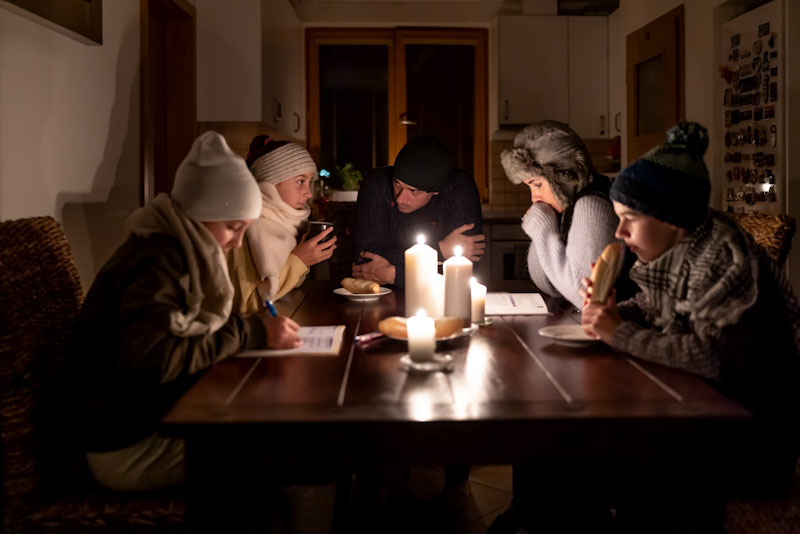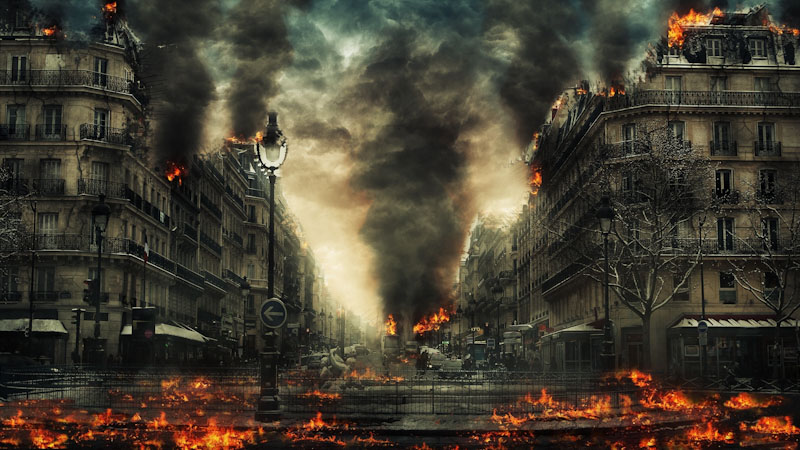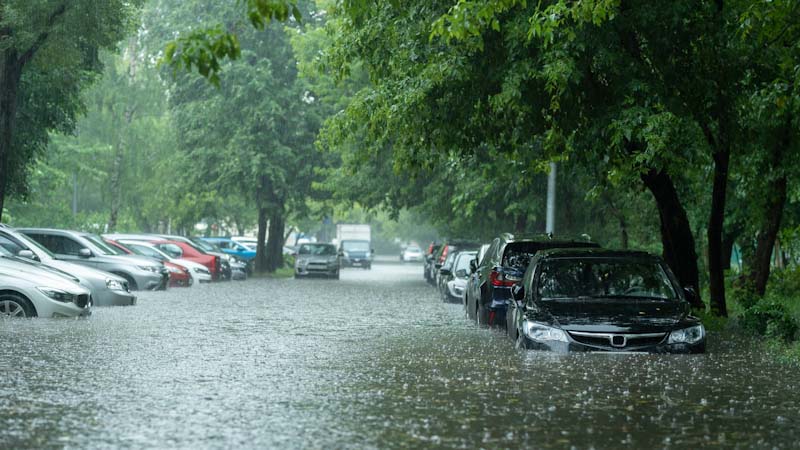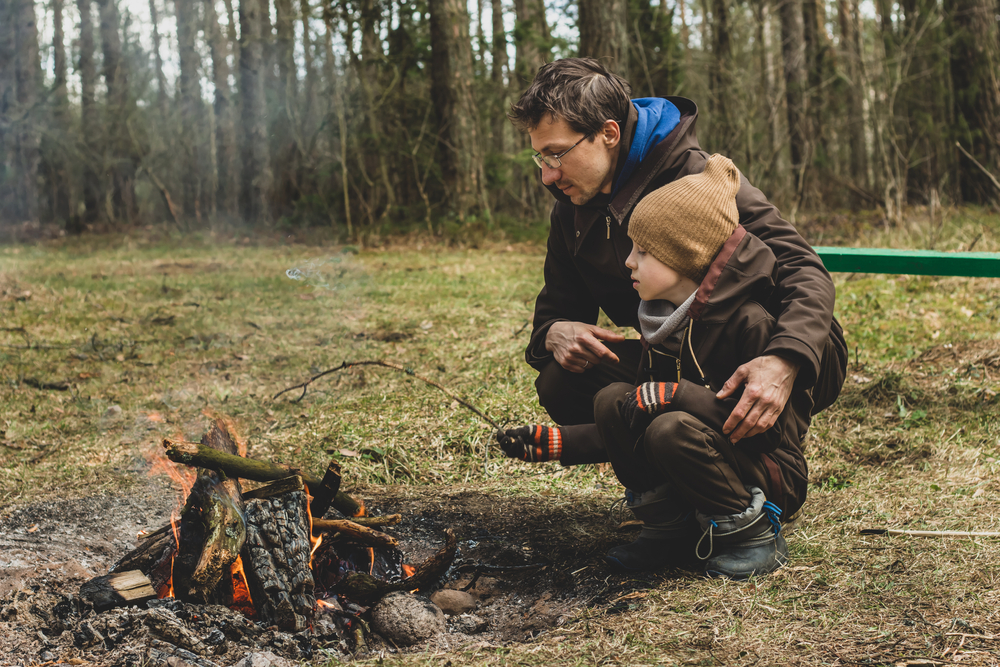Imagine this: You’re cozily nestled at home, wrapped up in blankets, and enjoying a TV show while a blizzard rages outside. Then, out of nowhere, the power abruptly goes out, plunging you into darkness. You instinctively reach for your phone, hoping to uncover the cause of this unexpected blackout.
Your suspicions are confirmed: the power grid has failed, likely due to ice-covered cables that won’t be fixed anytime soon. The city is shrouded in an eerie, oppressive darkness, and you find yourself in a waiting game until things return to normal. But are you truly prepared to endure such a crisis?
This scenario isn’t all that uncommon and serves as just one example of the many situations where individuals or families might find themselves confined to their homes, especially in urban areas. Moreover, there are instances when the emergency doesn’t permit a simple escape or evacuation.
Unforeseen natural disasters can catch people off guard, leaving them without the essential supplies needed to sustain themselves and ensure the safety and well-being of their loved ones. Basics like food, warmth, and security become immediate priorities in these trying times. It’s a reminder that preparedness is crucial, even in the comfort of our own homes, to weather the storms that life may throw our way.
Always have a bug-out plan
In emergency preparedness, preparing your home and stocking it with supplies is just one of the basic steps you need to take care of. Equally important is ensuring you have essential personal survival items readily available, which can be crucial if you need to relocate to a different place.
I’m not a big fan of hunkering down and waiting to see how it will all play out, and I’m always ready to evacuate in case my area and home are no longer safe. I believe that no matter how well-prepared you are, there may be unforeseen circumstances that will force you to evacuate. And when that happens, there will be no time to figure out what you need to carry and what should be left behind.
Being prepared at a personal level is just as important as having a well-stocked pantry and a fortified home. You should be ready to adapt and respond effectively when it’s time to abandon your home. Those living in the city should prioritize their survival plans based on the crisis they fear the most, but at the same time, the Plan B (bugging out) should be carefully debated, and everyone should be in charge of their own supplies.
Bugging out becomes quite troublesome if you have young and old people depending on you, but even so, you must carefully weigh the options you have. If you are convinced some of your party members won’t be able to handle the evacuation journey, you might as well stay home and hope for the best.
Your home, your castle!
Your home is akin to a fortress, and, just like a fortress, it should be well-prepared and secure to endure any potential crisis that the future may throw your way.
In the event of a disaster, it’s highly likely that access to utilities will be compromised, making it absolutely essential to have already gathered the items necessary to sustain your household. We often take for granted the myriad conveniences we rely on daily, failing to realize how precarious our situation could become during an extended crisis.
Consider the recent COVID-19 pandemic as an example; while challenging, it was still a manageable crisis because we retained access to electricity and public utilities, which contributed to maintaining a certain level of comfort. Now, imagine removing electricity from the equation; your family could be left without essential utilities for weeks or even months.
Some household necessities, like your bathtub or kitchen sink, are not easily portable, underscoring the importance of planning for their continued functionality. Spaces such as bathrooms, kitchens, and laundry rooms are vital for the well-being of everyone in your home, as we habitually share these areas in our daily lives. Thus, it’s crucial to ensure that these spaces remain operational even during the most challenging of times, emphasizing the necessity of preparedness within your household.
Covering the basics like food and water and their preparation
Water is one of our main survival needs, and it serves a multitude of vital functions in our daily lives, including cooking, cleaning, showering, and quenching our thirst. It’s an indispensable element without which life simply cannot persist.
Now, regardless of what you are prepping for or the duration of the emergency you plan on surviving, having water stored becomes a must. Also, finding the right storage solutions and effective filtration methods lies at the heart of any preparedness plan.
Besides making sure you have a good water supply in your home, it’s also essential to be able to identify external sources for replenishment, especially in urban settings. It’s important to recognize that all raw water sources should be treated as potentially contaminated, requiring you to be ready to purify any water you acquire. The role of filtration becomes paramount in this context.
Once you figure out your water needs and plan accordingly, you need to move to the next chapter of emergency preparedness: nutrition. In an urban environment, this can be a challenging task since most of the food you procure comes from external food sources. There are no farms in the city, and few urban dwellers actually know how complicated it is to keep a well-supplied grocery store.
Since procuring your own food will become almost impossible during a disaster, it’s best if you store long-lasting food items in your home. Remember that your grocery store typically carries only a few days’ worth of supplies, and there won’t be enough to go around when panic starts.
Bet on canned goods, dehydrated food, and even MREs if you can afford them. Always have an ample supply of rice, beans, and pasta since this ensures you’ll have sustenance long after the grocery stores have been closed.
To make sure the food you stored lasts a long time, it’s important to learn a few things about food storage. If you keep the food in a warm and humid environment, you’re lucky if these will last for a few months. However, storing the food supplies in a cooler and dry climate can extend the longevity of staple foods up to 10 years.
Regarding cooking, you should remember that you won’t probably have the time or resources to make complicated dishes, so you need to keep it as simple as possible. It’s true that eating foods that require no cooking promotes appetite fatigue, but you shouldn’t worry since there are simple ways to make a hot meal for your family. Meals in a jar is one example, and there are many recipes online that will show you how to prepare them. Prepare the ingredients in the jar, store the jar in the pantry, and when you’re hungry, just add water.
Staying warm
For those living in cold and humid environments, keeping the home warm when there is no electricity will become a great challenge. It’s estimated that more than 1,000 people die each year in the United States due to hypothermia. If you don’t want to become part of this gruesome statistic, you need to find alternative heating sources for when the public utilities cease to function.
Since relying on wood-burning stoves and fireplaces is almost impossible in the city since there are strict regulations for installing them, you need to explore alternative heating sources. Unfortunately, the only heating source you can always rely on is your body and the bodies of your loved ones.
To use these alternative heat sources, it’s best if you gather all your family members in one room and instruct them to do most of their activities there to heat up the area. Additionally, everyone should be dressed in layers to remove or add layers as needed. As for sleeping arrangements, I recommend getting that old camping tent out and installing it in the room where you’re all gathered. I would also recommend buying a sleeping bag for each family member since there are now various types of sleeping bags with modern insulation incorporated.
Besides using your body to create thermal mass, it’s important to make sure you insulate your home to retain as much heat as possible. For example, I store cardboard in my garage, and I use it for various tasks throughout the year, even though its main purpose would be to create insulation during a power outage. Cardboard is a great insulator, and you can use it inside your home on all the exterior-facing walls with nothing more than duct tape. To insulate the floor, I’m going to use the rugs from other rooms and a few wool blankets.
Another idea would be to build a water heater using soda cans and use the hot water to warm the room at night. The same principle can be obtained with your stored water since you can leave the containers in the sun during the day to soak up heat. The harnessed heat will be released once you take the containers inside. However, I must mention that this method will not work during severely cold days, and your water will most likely freeze.
Lighting your home
This is perhaps one of the issues you won’t have to worry about since there are all sorts of devices on the market that can light up a room with just a few batteries or a single solar charge. With the advancement in solar power equipment and the decreasing costs, a lot of people are relying on solar power nowadays to turn their homes into self-sustaining, off-grid properties. Even though it’s a great opportunity for many, this may not be suitable for the folks living in crowded cities.
At best, you could install a solar panel or two on your balcony if you have one and use the power they generate for your most important needs. Alternatively, you could buy a portable solar panel and move it around to charge items such as flashlights, lamps, and battery banks. As I’ve said, lighting your home should be the last of your worries, considering the many alternatives you have on today’s market.
Keeping your home clean
Waste disposal becomes a serious problem both outside and inside your home during a power outage if you live in the city. In fact, fecal waste is the number one problem people will have to deal with in urban environments. When sanitation and waste disposal systems fail, a health hazard becomes imminent. Waste will pile up quickly, and many contagious diseases can develop since fecal matter is full of nasty bacteria.
The best approach to keeping your home clean would be to look at how others are doing it, especially those living with inadequate sewer or sanitation systems. People in third-world countries usually establish a centralized location to deposit their waste, and this location is located at a considerable site from the living spaces.
For fecal matter, the best solution would be to bury it in a safe location, and this is the real challenge in an urban environment. Besides finding that burial place, you also need to have the appropriate tools to carry and handle the waste effectively. Buying and installing a dry toilet in your home is another idea and more and more people are considering this as a useful emergency alternative to their traditional toilets. However, even with one of these toilets, you will still need to personally handle the waste.
Kitchen waste and trash should be separated and stored accordingly. What can be recycled should be stored in a designated location. All the kitchen waste you produce should be turned into compost since nowadays there are compost bins even for apartments or be buried just like fecal matter.
One thing to mention here is that you will need to purchase store sanitation supplies to clean and disinfect tools, surfaces, and so on. It goes without saying that such supplies should be stored away from your water and food supplies.
A closing word
Living in an urban environment, although convenient, may prove to be a poor choice during a natural or man-made disaster when public utilities stop working. While I recommend bugging out if you have the opportunity to do so and a place to go to, I’m also aware that some folks will be forced to stay behind.
If you are one of those folks, I advise you to plan now when you have the chance and figure out all the things you need to do when help isn’t coming. Figure out how the layout of your house or apartment can be used to store supplies and how it can be converted into a solitary living area if needed. Figure out what skills you have that would come in handy when modern commodities are not available and so on.
Only you can establish what can be done to make your life easier in case of a crisis since you know every inch of your home, and you know what you and those around you are capable of when push comes to shove.









